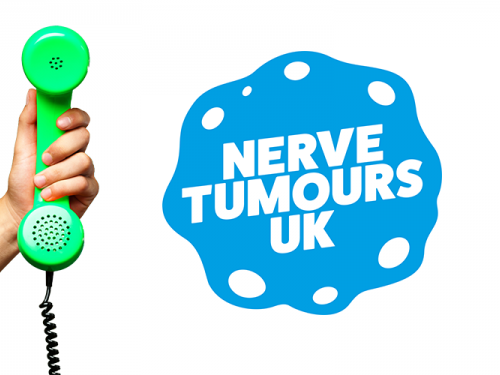Gisela’s Story
11 October 2024
My name is Gisela. I have NF2-related Schwannomatosis, which I inherited from my dad, who very sadly passed away last November. My dad, Albert-Guifré, inherited NF2 from his late mother, Mercè (who passed away in 2009). My uncle Oriol (my dad’s brother) also lives with NF2. NF2 is something that has affected and continues to affect my family in many different ways.
I am currently at university studying Modern Languages, and I am about to enter my third year, during which I will spend the year studying abroad in France. Although my NF2 doesn’t impact my day-to-day life too much, it has affected certain aspects of my experience at school and now at university, especially when it comes to making teaching staff aware of my condition, since NF2 is so rare, not necessarily visible, and most people have not heard of it.
NF2 is something that has affected and continues to affect my family in many different ways

One of the main difficulties I have faced is that the university teaching and wellbeing staff do not have sufficient knowledge of NF2 as a condition to fully understand my needs and the support I require to be put in place. As a result, I often find myself having to go into a lot of detail about NF2 and how exactly it affects me in my everyday life, so that staff can better understand my condition, perhaps more so than someone who lives with a more well-known medical condition and is more aware of the support available.
When I enrolled at my university after receiving my A-level results, one of the questions asked was, ‘Do you suffer from any physical or mental health conditions?’, to which I answered yes. A couple of weeks after completing the enrolment, I received an email from the Student Wellbeing Team asking me to submit evidence of my health condition (I sent in a copy of a clinic letter from my consultant) and inviting me to book a Zoom call with one of them to discuss my condition and the support I require.
NF2 is so rare, not necessarily visible, and most people have not heard of it.
_(2)_1024_768_s_c1.jpg)
Following this, information about my condition was added to my Student Record, and the relevant support and exam arrangements I had requested were put in place. Additionally, during the first meeting I had with my personal tutor, I also made them aware of my condition so that they were in the loop and would make accessing support easier if I needed to. My tutor then informed all my lecturers of my condition and asked them to put support in place where required.
The aspect of my NF2 that affects me most in educational settings is my hearing loss. I have normal hearing in my left ear but have a considerable amount of hearing loss in my right ear, which can sometimes be challenging in a classroom environment where I have to understand the teacher and communicate with peers over background noise. Although a teacher may be aware of my diagnosis, they sometimes forget about my hearing impairment, and I have occasionally had to remind them. Another aspect of education that I have found to be tricky, both at school and at university, is exam arrangements. Due to my hearing loss, I find it hard to hear exam invigilators if I am in a large exam hall, so at university, I sit all my exams in a smaller room and sit in the front row, so I can clearly hear the invigilator and don’t miss any any important instructions for the exam.
–"I hope that NF2 as a condition can gain increased visibility, particularly in schools and universities"
Overall, I would say that the response from teaching staff when telling them about my condition has been mostly positive. However, a clear downside is the fact that a huge number of people are not aware of what NF2 is and how it can affect those who live with it. Given that apart from my hearing loss, I don’t face any other challenges in the classroom, alot of my peers are not aware of my condition, but again, the response from those who are aware of it has been positive.
I hope that NF2 as a condition can gain increased visibility, particularly in schools and universities, so that future students can feel better supported by teaching staff, who will hopefully have more knowledge of how to support students living with NF2.

_500_375_s_c1.png)
_500_375_s_c1.png)

